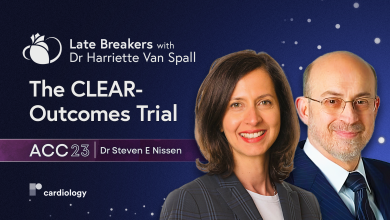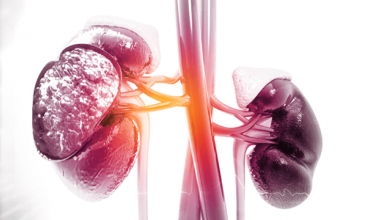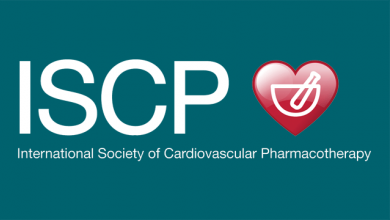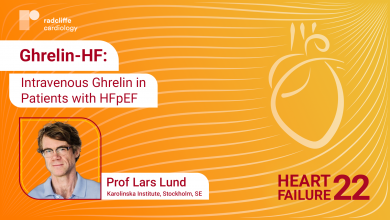Search results
Author(s):
Juan Tamargo
Added:
3 years ago
Type 2 diabetes (T2D) remains a major cardiovascular (CV) risk factor1–5 and it confers an approximately two- to threefold fold excess risk for coronary heart disease, including MI, stroke and heart failure (HF) in patients with and in patients without established cardiovascular disease (CVD).1,6–8 The prevalence of T2D among patients with HF is as high as 40–45% and that of HF in patients with…
View more
Author(s):
Juan Tamargo
Added:
3 years ago
In the article by Juan Tamargo entitled Sodium–glucose Cotransporter 2 Inhibitors in Heart Failure: Potential Mechanisms of Action, Adverse Effects and Future Developments (European Cardiology Review 2019;14(1):23–32. https://doi.org/10.15420/ecr.2018.34.2), the following correction should be made:
Figure 1 should indicate an increase (↑) in haemoglobin and haematocrit, not a decrease (↓). The…
View more
Author(s):
Harriette Van Spall
,
Steven E Nissen
Added:
1 year ago
ACC.23/WCC — Late-breaker host, Dr Harriette Van Spall (McMaster University, CA) is joined by principal investigator, Dr Steven Nissen (Cleveland Clinic, Cleveland, OH, US) to have a deep dive into the practice-changing CLEAR-Outcomes trial (NCT02993406).The Phase 3 CLEAR-Outcomes trial was conducted to evaluate the impact of bempedoic acid (ETC-1002) on the occurrence of major cardiovascular…
View more
Author(s):
Hans-Joachim Trappe
Added:
3 years ago
Neither supraventricular nor ventricular tachyarrhythmias are uncommon during pregnancy.1,2 When they are diagnosed, patients, relatives and physicians are frequently worried about ectopic beats and sustained arrhythmias.3,4 One should question whether arrhythmias should be treated in the same way as they would be outside pregnancy because all commonly used antiarrhythmic drugs cross the placenta…
View more
CVD in CKD: An Introduction
Author(s):
Hilary Warrens
,
Debasish Banerjee
,
Charles A Herzog
Added:
1 year ago
Article
Author(s):
Michel Burnier
Added:
3 years ago
Hypertension (HTN) is the most prevalent cardiovascular risk factor in developed and developing countries.1 According to most recent guidelines, the goal of HTN management should be to reduce blood pressure (BP) to <140/90mmHg and even lower in patients with a high cardiovascular risk in order to lower the incidence of cardiovascular events such as stroke, myocardial infarction, congestive…
View more
Author(s):
A Denegri
,
L Raeber
,
S Windecker
,
et al
Added:
3 years ago
Background: Although antidepressant therapy has been related to increased cardiovascular risk, depression, and its adverse effects on prognosis, is a well-recognised entity among acute coronary syndrome (ACS) patients. The aim of the study was to evaluate prevalence and outcome of antidepressant treatment in a real-world cohort of ACS patients.
Methods: We sought to assess the prevalence of…
View more
Author(s):
Lars H Lund
Added:
1 year ago
In this short interview from HF 22, Prof Lars Lund (Karolinska Institute, Stockholm, SE) joins us on-site to discuss the outcomes of the Ghrelin-HF study. This was a placebo controlled, randomised trial that evaluated the effects of intravenous ghrelin in patients with heart failure with preserved ejection fraction (HFpEF).
Discussion Points:
Aims of This Study
Mechanism of Action
Patient…
View more
The Place of Antiarrhythmic Drugs and Rhythm Control in the Treatment of Atrial Fibrillation
Author(s):
Philippe Chevalier
Added:
3 years ago
Article















